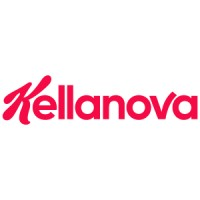Mars' Bold Move: The $36 Billion Snack Attack
August 16, 2024, 4:36 am
In a world where snacks reign supreme, Mars Inc. is making headlines. The chocolate titan is set to acquire Kellanova, the company behind the beloved Pringles, in a staggering $36 billion cash deal. This acquisition is not just a business maneuver; it’s a strategic leap into the future of snacking.
Mars has offered $83.50 per share for Kellanova, a 33% premium over its closing price just weeks ago. This deal marks the largest acquisition in the packaged food industry to date and the biggest takeover of 2024. It’s a bold statement in a market where food companies are grappling with declining sales and shifting consumer preferences.
Kellanova emerged from the ashes of Kellogg's, which split into three entities last year. With brands like Pringles, Special K, and Carrs under its belt, Kellanova represents a treasure trove of snack potential. Mars, known for its iconic candies like Snickers and Skittles, is looking to diversify its portfolio. This acquisition is a strategic move to bolster its snack division, which is increasingly vital in today’s health-conscious market.
The landscape of consumer goods is changing. Inflation and rising interest rates have nudged shoppers away from branded products. Many are opting for cheaper, store-brand alternatives. In this environment, Mars is betting big on snacks. The company aims to stabilize prices and absorb costs, rather than passing them onto consumers. This approach could set Mars apart from competitors who are struggling to maintain profitability.
Poul Weihrauch, the CEO of Mars, envisions a future where the combined forces of Mars and Kellanova create a sustainable snacking powerhouse. He emphasizes the importance of honoring Kellanova’s heritage while innovating for the future. This sentiment resonates in a market that craves both nostalgia and novelty.
Mars is not just looking to expand its product line; it’s also focused on health. The company plans to invest in healthier snack options, tapping into a growing consumer demand for nutritious choices. Half of Kellanova’s offerings will include better-for-you snacks, such as Special K and Kind bars. This shift aligns with broader trends in the food industry, where health and wellness are paramount.
The acquisition also positions Mars to compete more fiercely with giants like Nestlé. While Nestlé is exploring new products aimed at weight management, Mars is taking a different route. It’s doubling down on existing brands and enhancing their appeal. This strategy could prove advantageous as consumers seek familiar, trusted names in uncertain economic times.
However, the road ahead is not without challenges. The deal will require shareholder approval and is likely to face scrutiny from regulators. The size of the acquisition raises questions about market competition. Will this merger create a snack monopoly? Only time will tell.
Meanwhile, the food industry is experiencing a seismic shift. McDonald’s recently reported a surprising drop in global sales, the first decline in 13 quarters. Customers are shying away from pricier menu items, indicating a broader trend of cautious spending. As consumers tighten their belts, companies must adapt or risk being left behind.
Mars’ acquisition of Kellanova is a gamble, but it’s one that could pay off handsomely. By expanding its snack offerings, Mars is positioning itself to capture a larger share of the market. The potential for growth is immense, especially as health-conscious snacking becomes more mainstream.
This deal also reflects a larger narrative in the food industry. As consumers become more discerning, companies must innovate or perish. Mars is betting on the power of snacks to drive future growth. It’s a bold move in a landscape that is anything but stable.
In conclusion, Mars’ acquisition of Kellanova is a landmark event in the food industry. It’s a strategic play that could redefine the snacking landscape. As the deal unfolds, all eyes will be on Mars. Will it successfully integrate Kellanova and capitalize on the growing demand for snacks? Only time will tell. But one thing is clear: Mars is hungry for growth, and it’s not afraid to take big bites to achieve it.
Mars has offered $83.50 per share for Kellanova, a 33% premium over its closing price just weeks ago. This deal marks the largest acquisition in the packaged food industry to date and the biggest takeover of 2024. It’s a bold statement in a market where food companies are grappling with declining sales and shifting consumer preferences.
Kellanova emerged from the ashes of Kellogg's, which split into three entities last year. With brands like Pringles, Special K, and Carrs under its belt, Kellanova represents a treasure trove of snack potential. Mars, known for its iconic candies like Snickers and Skittles, is looking to diversify its portfolio. This acquisition is a strategic move to bolster its snack division, which is increasingly vital in today’s health-conscious market.
The landscape of consumer goods is changing. Inflation and rising interest rates have nudged shoppers away from branded products. Many are opting for cheaper, store-brand alternatives. In this environment, Mars is betting big on snacks. The company aims to stabilize prices and absorb costs, rather than passing them onto consumers. This approach could set Mars apart from competitors who are struggling to maintain profitability.
Poul Weihrauch, the CEO of Mars, envisions a future where the combined forces of Mars and Kellanova create a sustainable snacking powerhouse. He emphasizes the importance of honoring Kellanova’s heritage while innovating for the future. This sentiment resonates in a market that craves both nostalgia and novelty.
Mars is not just looking to expand its product line; it’s also focused on health. The company plans to invest in healthier snack options, tapping into a growing consumer demand for nutritious choices. Half of Kellanova’s offerings will include better-for-you snacks, such as Special K and Kind bars. This shift aligns with broader trends in the food industry, where health and wellness are paramount.
The acquisition also positions Mars to compete more fiercely with giants like Nestlé. While Nestlé is exploring new products aimed at weight management, Mars is taking a different route. It’s doubling down on existing brands and enhancing their appeal. This strategy could prove advantageous as consumers seek familiar, trusted names in uncertain economic times.
However, the road ahead is not without challenges. The deal will require shareholder approval and is likely to face scrutiny from regulators. The size of the acquisition raises questions about market competition. Will this merger create a snack monopoly? Only time will tell.
Meanwhile, the food industry is experiencing a seismic shift. McDonald’s recently reported a surprising drop in global sales, the first decline in 13 quarters. Customers are shying away from pricier menu items, indicating a broader trend of cautious spending. As consumers tighten their belts, companies must adapt or risk being left behind.
Mars’ acquisition of Kellanova is a gamble, but it’s one that could pay off handsomely. By expanding its snack offerings, Mars is positioning itself to capture a larger share of the market. The potential for growth is immense, especially as health-conscious snacking becomes more mainstream.
This deal also reflects a larger narrative in the food industry. As consumers become more discerning, companies must innovate or perish. Mars is betting on the power of snacks to drive future growth. It’s a bold move in a landscape that is anything but stable.
In conclusion, Mars’ acquisition of Kellanova is a landmark event in the food industry. It’s a strategic play that could redefine the snacking landscape. As the deal unfolds, all eyes will be on Mars. Will it successfully integrate Kellanova and capitalize on the growing demand for snacks? Only time will tell. But one thing is clear: Mars is hungry for growth, and it’s not afraid to take big bites to achieve it.

